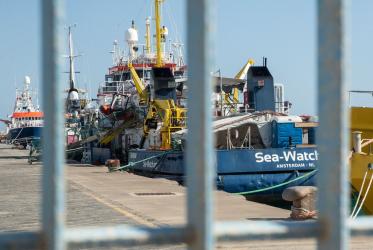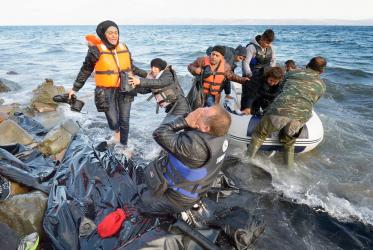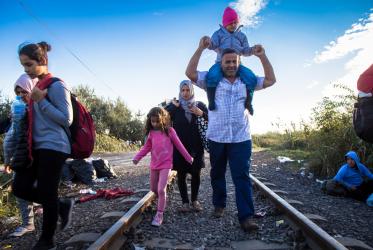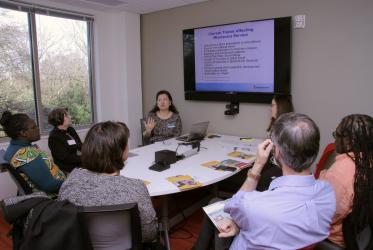Displaying 1 - 20 of 35
‘European humanitarian corridor’ proposed
02 May 2019
Turning mercy and compassion into action
04 March 2019
Christian communicators work to counter hate speech against refugees
10 December 2018
How can you help refugees?
11 October 2018
World conference on xenophobia, racism, and populist nationalism in the context of global migration
18 - 20 September 2018
Ergife Palace Hotel, via Aurelia 619, Rome, Italy
Conference explores Christian approach to borders
05 October 2017
WCC appeals for support, for all to stand #WithRefugees
31 August 2016















